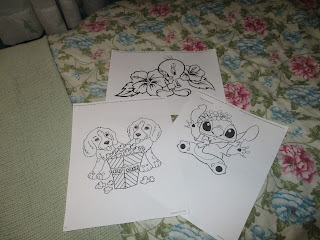I'm going to write about some aspects of job hunting
this week. After all, I'm not the only one in this position, and there are some
things that can be wise to do even when happily employed. One good project at
any time is improving your LinkedIn profile. Here's mine:
I have added job history and training and even some
test scores, but my big focus has been increasing my connections. I was told I
should try to get to at least 500. I think I was previously at 85.
That makes my current number of 319 connections very
impressive, but the early fast accumulation has petered out. At this rate,
making it to 500 is very far away. However, I now understand why they give you
500 as a goal - after that your connections display as 500+. You appear to have
a maximum level of connectedness then, even if the actual number is 501.
There is a value to having many connections beyond
the appearance of being well-connected, and effective networking is its own
topic. LinkedIn will do job searches, and when you are interested in one, they
will tell you if you have connections or fellow alumni at the company. In
addition, people try to fill jobs before they are posted publicly. When whom
you know matters, knowing more people is helpful. That is not what I am writing
about today.
If you are currently in the phase of trying to build
up your connections, and need enough connections to be somewhat undiscriminating, I have made some observations on that process.
There are three options for growth under My Network:
Add Contacts, People You May Know, and Find Alumni.
Add Contacts: This feature allows you to use your
e-mail address book to find potential connections. It can be useful, but
depending on your e-mail habits it may cast too wide a net. In addition to
having made several agent inquiries recently, I have in the past been the
administrator on different preparedness newsletters.
Find Alumni: I have not found a way to do this for
my high school, where I would know lots of people. For my college, first it
brings up all the Ducks I am already connected to - whom I do know - and then
quickly goes to people who are completely unfamiliar.
It is handy that if you have a school in common that
is enough to request to connect, even if you have no other connections in
common. Some alumni may not remember you specifically, but still be willing to
connect because of school spirit. I generally do not try and connect with
people I have never met, but you can do it. This leads to our final tool...
People You May Know: This will contain a lot of
people you don't know. There will be people that you know too, and you will
click Connect, and if they check LinkedIn regularly your numbers will soon
grow, but there will be many more that are not suitable for connection.
Initially this is pretty interesting. You see people
you know, and then people who are familiar but not really known - like that guy
you always used to pass in the hall on your way to the cafeteria. Now you know
his name without ever having gotten close enough to read his badge.
There are near misses that give you an idea of the
algorithm. Okay, I think that's Deanna's daughter-in-law, and that's Rachel's
father. That is definitely my sister's manager's son's wife.
Then there are things that are more confusing. I
know someone with that name, but this is not that person. This name is not
familiar, but they look a lot like a different person I know.
Sometimes it can be very sad. One time a former
co-worker and an old friend who both died of cancer came up right next to each
other.
Generally speaking, these are not people you would
not click to Connect with, but scroll past them and the list will keep getting
longer. The task of going through them all grows, inversely proportional to the
hope of finding other acquaintances.
You don't have to keep scrolling through the same
unfamiliar faces. Clicking the X in the upper right corner dismisses them, at
least temporarily. Do this a few times, and even previously populated rows will
go away. "Fine!" the algorithm seems to say, "I guess there are
no people you know."
I try and do a combination of both, scrolling far
down looking one time, and dismissing early the next. At first I would feel
guilty about clicking away these smiling faces, but I had to remember that I am
not rejecting them as people; I'm just saying we don't know each other.
That leads us back to that question of connecting
with people you don't know. You can try it. It might work. They might think
they know you or decide more connections is good regardless. They might feel
the attempted connection is an imposition too, but as strangers they will
probably have forgotten you if you do encounter each other in the future. The
risks seem relatively low, but it still feels weird to me. I need to have some
memory of you.
But if you want to connect, and I don't remember
you, but you seem like a reasonable person, I am probably going to accept that.
And right now, I am on there every day.
And every connection increases the chance of me
finding more people that I actually do know.




















